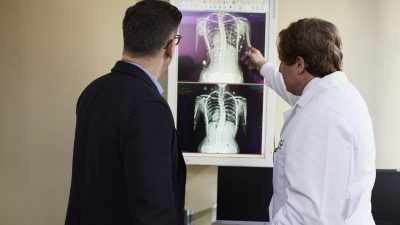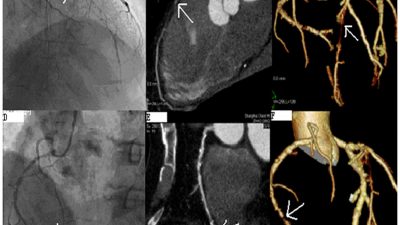Accreditation for Cardiovascular Excellence was proud to be recognized at the American College of Cardiology 2019 Quality Summit for our poster presentation, Lessons from Accreditation Action Plans: Common Areas for Quality Improvement in the Cath Lab, and we also brought back a bit more insight into quality cardiac care from the conference.
ACE Recognized in ACC’s 2019 Quality Summit Poster Competition: Common Areas for Quality Improvement in the Cath Lab – ACE
Accreditation for Cardiovascular Excellence was awarded a third place recognition for our poster presentation, answering the questions: What are common areas for quality improvement in cardiac cath labs, and what strategies are most commonly used by institutions seeking accreditation to achieve quality improvement goals? Our poster has practical takeaways for your organization: By actively and intentionally improving QI programs, health care organizations can adopt proactive solutions to ensure reaching the highest quality standards. Read more »
Glowing Reviews for Low-Risk TAVR Trials at ACC – Medpage Today
Results from two trials presented at ACC’s 2019 Quality Summit showed the benefits of transcatheter aortic valve replacement (TAVR) in low-risk patients when compared to surgical aortic valve replacement (SAVR). “The fact that two separate groups using two separate valves have come to very similar conclusions, this not only doubles the acceptability [of TAVR], but it quadruples it,” said Eugene Braunwald, MD, of Brigham and Women’s Hospital in Boston. “The challenge now seems to be understanding not what is the position of TAVR, but what would be the remaining patient population best treated with open heart surgery,” said Danny Dvir, MD, of University of Washington Medical Center in Seattle. Other doctors call for caution in making TAVR an automatic default—younger patients may have a survival advantage with mechanical valves, not an option through TAVR procedures. Read more »
Off Script: As the Quantification of Cath Lab Quality Gets an Upgrade, Frustrations Abound – TCTMD
As could be expected, the National Cardiovascular Data Registry was a major topic of conversation at ACC’s Quality Summit—with many attendees expressing frustration with the burden of data collection. While ACC announced quality-focused details on NCDR’s pending upgrade to version 5.0, many voiced concerns that new structured reporting requirements are simply “adding to the bureaucratic load of busy phyisicans,” writes author Kwan S Lee, MD, of the Sarver Heart Center at the University of Arizona, from his personal experience. Dr. Lee also drew attention to the fact that “a large amount is lost in translation and efficiency” when the cardiologist’s report is then read and coded by a remote nurse data abstractor, a tactic employed by many health systems to reduce the bureaucratic burden on doctors. With regards to data collection, says Dr. Lee, “We have a mountain to climb in what should be an obvious, singular, unified cause: the delivery and achievement of quality for our patients.” Read more »
Quality Matters Commentary: Data Collection, Quality Care and Accreditation
Lee’s article, above, examines an issue at the crux of what we at ACE hope to help achieve for cardiac care organizations around the world. You can’t improve what you don’t measure, and strong documentation is crucial to any quality improvement effort. In fact, our poster study which examined 14 organizations where accreditation was initially deferred by ACE found 126 discrete shortcomings in documentation, accounting for 23 percent of all shortcomings across all categories of standards. At these under-performing organizations, failure to capture comprehensive documentation was a widespread issue.
But this all-important rationale can get lost when facing the reality that comprehensive and accurate documentation can be quite the chore for the cardiologist. But it’s a rationale of which physicians should be constantly reminded—not only in educational resources (like our poster), but also in the quality improvement processes of health care organizations. At ACE, we strongly believe that when physicians can visually and procedurally see the results of effective quality improvement and QI communication in an organization, improvements founded on their strong documentation, they’d be far more likely to internalize the importance of what might currently be considered a bureaucratic chore. We should remember that we can all agree on, rally around, and we’re all truly motivated by, improving the quality of care for our patients.
It has also been our experience that ACE accreditation can provide the impetus and supportive consultation required for organizations to build stronger data collection and quality improvement systems, and frankly build stronger communication between team members, administrators and physicians. ACE accreditation provides an ideal platform for your organization to carefully examine processes and systems while negotiating, with a supportive, third-party process, potential changes and improvements on a level where quality improvement is the only agenda. This is true for ALL organizations, even the best of the best.
Learn more about how ACE accreditation can support your organization »












